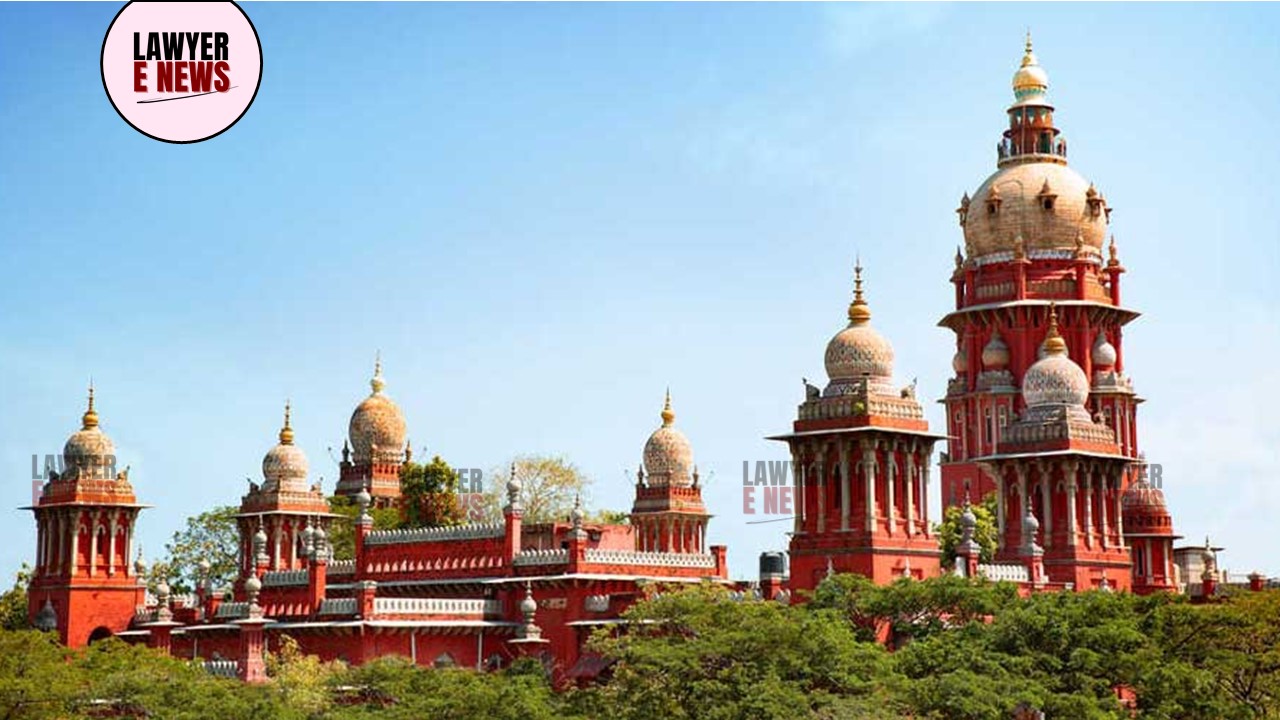-
by Admin
15 February 2026 5:35 AM



On October 23, 2024, the Madras High Court, presided by Justice M. Dhandapani, issued a writ of mandamus directing the Project & Equipment Corporation of India (PEC) Ltd. to pay Rs. 154.51 crores to the Tamil Nadu Civil Supplies Corporation (TNCSC) within 12 weeks. The court ruled that PEC Ltd.’s financial constraints were no excuse for withholding the payment, particularly as the Central Government had already released the subsidy.
Writ Jurisdiction Invoked for Admitted Liability in Subsidy Dispute
The petitioner, TNCSC, filed a writ petition seeking the court’s direction to PEC Ltd. to reimburse the unpaid subsidy of Rs. 154.51 crores. This amount was owed for the procurement of RBD Palmolein Oil under the Public Distribution Scheme (PDS). TNCSC argued that PEC Ltd. failed to release the subsidy amount despite it being admitted, and despite the Central Government having already disbursed the funds.
Respondents’ Claim of Financial Losses Rejected by the Court
PEC Ltd. admitted that it owed TNCSC the amount in question but cited financial difficulties, including substantial losses due to defaults by private companies, which left the organization with a negative net worth of approximately Rs. 1150 crores. Despite these claims, the court held that PEC Ltd.’s admission of liability justified the issuance of a writ of mandamus, stating that PEC Ltd. must release the subsidy funds immediately, regardless of its financial situation.
Availability of Alternative Remedies Does Not Oust Writ Jurisdiction in Admitted Liability Cases
PEC Ltd. argued that TNCSC should have pursued alternative remedies such as arbitration or the Administrative Mechanism for Resolution of Central Public Sector Enterprises (CPSEs). However, the court emphasized that writ jurisdiction is not barred when there is an admitted liability. It pointed out that arbitration or alternative dispute mechanisms are not necessary when the liability is clear and uncontested.
Unpaid Subsidy for Procurement of Palmolein Oil
The case centered on the procurement of RBD Palmolein Oil by TNCSC under the PDS scheme, which was subsidized by the Central and State governments. Between 2012 and 2013, TNCSC procured the oil from PEC Ltd., which acted as the procuring agency. However, despite the government releasing the subsidy, PEC Ltd. failed to pay the amount to TNCSC, citing financial constraints. Multiple representations and letters from TNCSC to both PEC Ltd. and the Central Government failed to resolve the issue, leading to the present writ petition.
Court Cites Precedents Supporting Writ Jurisdiction in Admitted Liability Cases
In ruling in favor of TNCSC, the court relied on several key precedents, including:
Harbanslal Sahnia vs. Indian Oil Corporation Ltd. (2003) 2 SCC 107, where the Supreme Court held that writ jurisdiction could be invoked even when alternative remedies exist if there is an admitted liability.
Bhaben Construction vs. Executive, Sardar Sarovar Narmada Nigam Ltd. (2022) 1 SCC 75, which reinforced the notion that writ jurisdiction is a discretionary power and can be exercised where warranted, despite the availability of other dispute resolution mechanisms.
Admitted Liability: No Grounds for Arbitration
The court dismissed the respondents' argument that TNCSC should have pursued arbitration, ruling that since PEC Ltd. had admitted the amount due, there was no need to invoke arbitration or the CPSE mechanism. The court also pointed out that PEC Ltd.'s repeated admissions, including letters to the Ministry of Consumer Affairs, showed that the liability was undisputed.
Court Denounces Delays: Orders Payment Within 12 Weeks
Justice Dhandapani criticized PEC Ltd.'s attempts to prolong the payment by citing financial difficulties, calling these efforts a "vain attempt" to delay the process. He emphasized that the payment of the subsidy was essential for the smooth functioning of TNCSC's public distribution services. The court directed PEC Ltd. to release the entire amount of Rs. 154.52 crores within 12 weeks from the date of the order.
Date of Decision: October 23, 2024
The Managing Director, Tamil Nadu Civil Supplies Corporation vs. Union of India & Ors.
